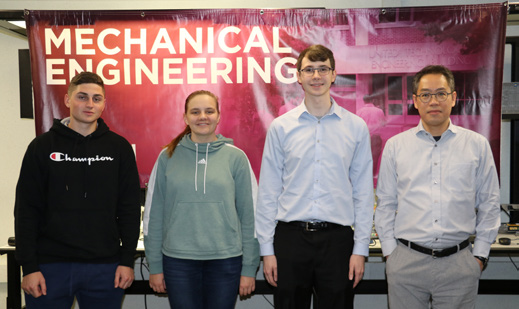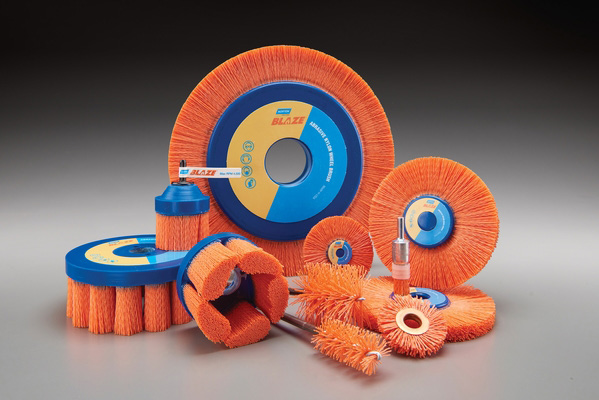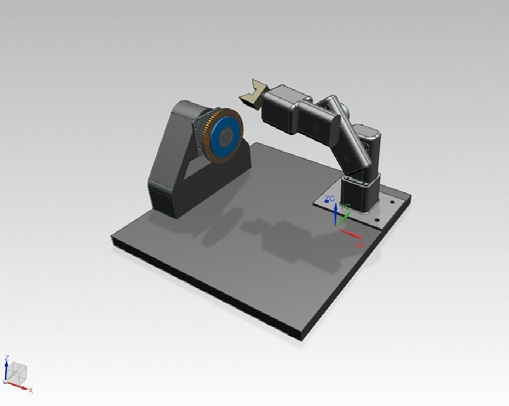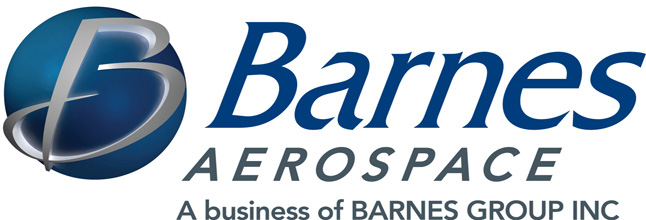
Figure 1

Figure 2

Mechanical Engineering
Team 3
Team Members |
Faculty Advisor |
Christopher Buckley |
Tai-Hsi Fan Sponsor Barnes Aerospace |
sponsored by

The objective of this project is to design and build a testing system that will evaluate the result of changes to variable inputs on the performance of abrasive brushes. Our sponsor, Barnes Aerospace, currently uses an automated robotic deburring system to finish their products. Some of the finishing performed by the robot is removing burrs and blending edges. There are several controlled parameters, including the rotational speed of the brush, the pressure applied between the brush and work piece and the temperature produced from friction. Our team created a testing rig prototype that Barnes will utilize to build a full-scale testing rig. The design consists of a fixed brush attached to a mount and a six degrees of freedom robot arm that brings the work piece to the motor. The motor spins multiple types of abrasive brushes ranging in size from 4 to 14 inches in diameter. A force sensor attached to the robot arm measures the normal force experienced by the part when it is pressed against the abrasive brush. The speed of rotation of the brush, as well as the temperature of the area of contact between the part and the brush are also measured by the rig. Utilizing this data, Barnes will be able to optimize the deburring conditions, enabling their parts to be deburred faster and with the least amount of brush wear.
